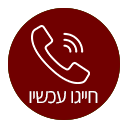Are you suffering from any medical problem? Have you tried everything and did not work?
There is no reason to be desperate at all.
Write to me through WhatsApp or Email regarding the problem you suffer from and I shall personally return to you with an accurate reply about what to do
How to Recognize the Symptoms of Thoracic Spinal Disc Herniation
Treating Disc Herniation Symptoms: Numbness, weakness, and even pain in your fingers, arms, and hands can be caused by Cervical Disc Herniation. Typically, cervical discs happen when you get between thirty and fifty years of age. In some cases, damaged or herniated spinal discs can arise from some kind of trauma or accident to the neck or back. Either way, it is recommended that you go to an expert as soon as possible, as this condition is not usually life threatening or anything like that.
So, what are the many symptoms of Disc herniation? Here are some examples of herniated disc symptoms: The initial onset of the symptoms of herniated disks is a tingling sensation that spreads from the center of the spine and then down each arm. Some people may also feel a dull ache on their arms. When the pain moves away, the individual may notice a reduction in strength in their muscles, while others may even notice muscle weakness.
If these symptoms seem a bit too much for you to handle on your own, then you will want to make an appointment with a chiropractor for you to properly diagnosis of the situation. With this evaluation, your chiropractor will look into the spine, which may include X-rays and MRI scans to get a clearer picture. A more severe case of disc herniation symptoms will manifest in various ways. Some individuals will feel a pinching sensation from the middle of their back to their shoulders. Other symptoms may involve numbness in the arms or fingers, pain in the spine, and even loss of bladder control.
Most patients who suffer from herniations usually experience pain, numbness and tingling in the affected area. However, disc symptoms can vary from person to person depending on the location of the spine’s intervertebral disc. There are several typical symptoms associated with herniating discs, including general muscular weakness, loss of bladder or bowel control, muscle weakness in the arms or legs, pain and/or tenderness, back or hip pain, dizziness, and difficulty breathing. If you find yourself experiencing any of these symptoms on a regular basis, then it is likely that you have experienced a herniating disc in the past.
In rare cases, the disc herniation may also lead to bowel and bladder control problems as well as problems walking. However, these are far less common. In most cases, patients can resume normal activities after the procedure has been performed. However, there are some patients that do not improve regardless of treatment options. For this reason, it is recommended that patients wait until their doctors recommend that their condition has healed completely before undergoing a surgical procedure to relieve symptoms.
Although herniated or bulging disks are more common in younger people, they can occur at any age. A hernia occurs when a part of the vertebral column or the spinal canal becomes misaligned, compressing the surrounding tissues. This compression can either be passive, meaning that it is only a problem when the person moves, or active, meaning that it occurs when the person is at rest. Herniations can also be caused by a hernia occurring in the neck or upper back area, although most hernias in these areas occur in the lower cervical spine (neck, shoulders, and upper back). Nerve compression can also occur in the lower extremities, which is what makes a hernia possible in the first place.
Another common hernia symptom is bowel or bladder dysfunction. Most people who have this condition experience incontinence. Some herniations can also cause bowel or bladder problems, including inflammation and blockage of the intestine as well as bowel or bladder dysfunction. These symptoms can occur along with numbness in the affected area. In some rare cases, the patient may have a bulge in the abdomen that is associated with bowel or bladder dysfunction.
A hernia symptom that is very similar to bowel or bladder dysfunction is regurgitation, or the return of gas or liquid into the abdominal cavity. Because regurgitation is caused by damage to the muscles supporting the diaphragm and the bladder, symptoms of this condition should be treated as a hernia symptom as well, even if they do not involve the intestines. Other signs and symptoms that may occur along with regurgitation include pain, bloating, nausea, vomiting, and fever. Thoracic disc herniation symptoms are very rare, but they should be considered if you experience these symptoms after having a hernia.
For 30 years Oren Zarif helped patients and sufferers around the globus who suffered from numerous and complicated problems where conventional medicine also did not succeed to provide an answer





















